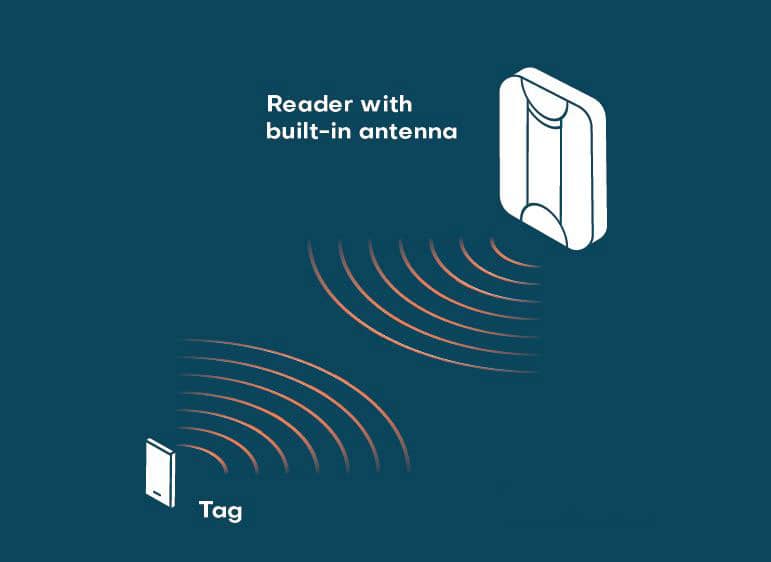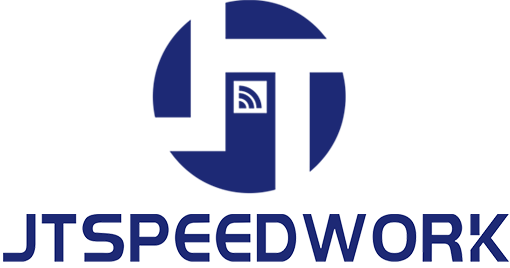
As global awareness of sustainable development continues to grow, environmental protection and resource recycling have become crucial to urban management and industrial transformation. However, traditional waste management systems still face challenges such as poor information transparency, inaccurate classification, limited traceability, and low recycling efficiency. With the advancement of the Internet of Things (IoT) and Radio Frequency Identification (RFID) technologies, waste treatment and resource recovery are entering a new stage of digitalization. Because of its advantages in non-contact identification, rapid data collection, and full traceability, RFID has become an important driver of modern environmental management.
How RFID Supports Environmental Management
RFID is a wireless technology that enables automatic identification and data transfer. It consists of electronic tags, readers, and a data management platform. When an object with an RFID tag enters the range of a reader, the system automatically retrieves its identity and records relevant data without human contact.
In waste management and recycling, RFID offers several distinct benefits. Each waste bin, container, or garbage bag can carry a unique RFID tag, allowing precise identification and classification. The entire process—from waste generation and collection to transportation and treatment—can be tracked in real time, ensuring transparency and compliance. Systems equipped with UHF RFID antennas and UHF RFID modules can connect to collection trucks, weighing devices, and cloud-based platforms, automating data capture and improving operational efficiency. The information gathered provides valuable insights for optimizing collection routes, improving classification accuracy, and supporting data-driven policy decisions.
Real-World Applications of RFID in Waste and Recycling
In smart cities, RFID has become a key tool for managing waste classification. Each garbage bin or bag is labeled with an RFID chip, while residents use smart cards or mobile apps to log their disposal. Collection vehicles fitted with directional RFID readers can automatically detect tagged bins, record collection times, and upload data to a central system. In several pilot programs in China, this system is combined with a point-based reward scheme—residents earn points for proper waste sorting, which can be exchanged for household goods or community services. This approach not only motivates participation but also provides measurable data for government oversight.
Industrial waste management is another important application. Many factories produce hazardous waste that must be carefully monitored. RFID tags attached to waste containers enable real-time tracking of materials from generation to disposal. In chemical industrial zones, RFID systems equipped with UHF RFID antennas and GPS modules monitor each step of transportation. Any deviation from authorized routes or unauthorized unloading triggers an alert, ensuring environmental compliance and safety.
In recycling operations, RFID supports the circular economy by making sorting and resource recovery more efficient. For instance, RFID chips embedded in electronic products during manufacturing can store details such as material composition and production information. When the products are collected for recycling, this data helps identify reusable parts and hazardous components, improving the quality and efficiency of disassembly. Recycling plants using UHF RFID modules in conveyor or sorting systems can achieve high-speed recognition and sorting accuracy above 98%, while automatically recording batch information for inventory management.
Integration with Emerging Technologies
RFID becomes even more powerful when combined with other digital technologies. Through IoT integration, RFID readers can transmit data in real time. Waste trucks equipped with directional RFID readers and IoT modules can share operational information over 4G or 5G networks, enabling smart scheduling and reducing carbon emissions. Big data analysis can further extract insights from information collected by UHF RFID antennas, helping cities identify high-waste areas and predict future needs. Artificial intelligence also plays a growing role: image recognition systems can cross-check RFID data to detect misclassification or illegal dumping, supporting automated and intelligent monitoring.
Global Practices and Results
Singapore’s National Environment Agency (NEA) has implemented RFID-based waste tracking for bins and collection vehicles. Each bin carries an RFID tag that stores collection time and weight. Waste trucks equipped with directional RFID readers automatically scan and record data during collection. This system has improved collection efficiency by about 30% and reduced operational costs.
In China, a large recycling enterprise uses UHF RFID modules to manage recyclable materials such as plastic bottles and metal products. Each tag stores information about the source, collection time, and weight, synchronized with the company’s ERP platform. This digital approach has reduced manual entry errors by 90% and increased recycling efficiency by 40%.
Challenges and Future Outlook
Although RFID brings clear benefits to environmental management, several challenges remain. The cost of tags can be high for low-value waste, and extreme conditions such as heat, humidity, or chemical exposure may reduce tag durability. In addition, the lack of standardized systems across regions makes data sharing difficult. Privacy protection is also important, as household waste data can reveal individual behavior patterns.
Looking ahead, the development of low-cost and eco-friendly RFID tags, as well as more durable UHF RFID antennas, will help overcome these issues. Integration with blockchain technology can also enhance data authenticity and prevent tampering, ensuring greater transparency in the waste management chain.
Conclusion
RFID is more than a tracking tool—it is a key enabler of the “zero-waste city” vision. By embedding intelligence and traceability into every stage of waste collection, transportation, and recycling, RFID connects information flow with material flow. As the technology continues to integrate with AI, IoT, and data analytics, systems built around UHF RFID modules, UHF RFID antennas, and directional RFID readers will make waste management smarter, more transparent, and more sustainable—paving the way for a cleaner and greener planet.
 portuguêspt
portuguêspt chamada na :
+86 18681515767
chamada na :
+86 18681515767
 o email :
marketing@jtspeedwork.com
o email :
marketing@jtspeedwork.com


















